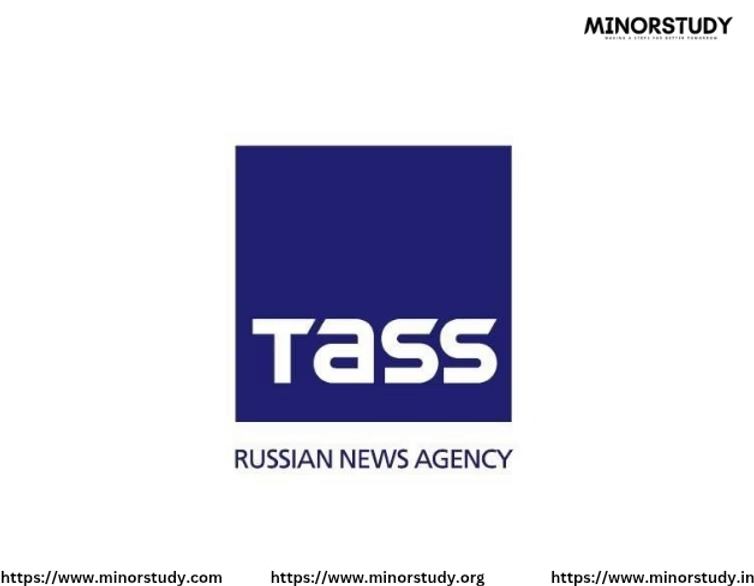7 Powerful Truths About TASS That Reveal Its Controversial Legacy in Global Journalism
📰 Introduction: TASS – Russia’s Voice to the World
For over a century, TASS has stood as Russia’s official news voice, evolving from a Soviet-era propaganda arm to a modern-day state news agency with global reach. From dispatching bulletins during World War II to covering space missions and diplomatic events, TASS has been a crucial player in shaping how the world perceives Russia and its allies.
- 📰 Introduction: TASS – Russia’s Voice to the World
- 🕰️ History of TASS: From Empire to Federation
- 🔹 The Birth of a State Messenger (1904–1925)
- 🔹 Propaganda and Power (1930s–1950s)
- 🔹 Cold War Era: Global Reach, Controlled Voice (1950s–1991)
- 🔹 Post-Soviet Transformation (1991–Present)
- 📅 Timeline of Major Events in TASS History
- 📊 7 Powerful Truths About TASS
- ❓ Frequently Asked Questions (FAQs)
- Q1: What does “TASS” stand for?
- Q2: Is TASS state-run?
- Q3: Can we trust TASS for unbiased news?
- Q4: What languages does TASS publish in?
- Q5: Who competes with TASS internationally?
- 🌍 Significance of TASS in Global Context
- 🗞️ Political Messaging Tool
- 🎥 Historical Record Keeper
- 🛰️ Communication Backbone During Crisis
- 📡 Tech-Savvy Media Engine
- 🪄 Observance and Wishes for TASS’s Future
- 📌 Key Highlights and Takeaways
- 🧬 TASS’s Impact in Daily Life and Global Society
- 🧠 Human Reflections: Navigating TASS as a Modern Reader
- ✅ Conclusion: TASS – A Pillar of Power or a Relic of Propaganda?
Yet, it remains controversial — respected by some for its historical gravitas and distrusted by others for its perceived role in state-controlled narratives. In this article, we explore the truths about TASS, tracing its history, significance, controversies, and its real-world impacts on daily life and society.
🕰️ History of TASS: From Empire to Federation
🔹 The Birth of a State Messenger (1904–1925)
1904: TASS originated as the St. Petersburg Telegraph Agency (SPTA) during the Russian Empire.
Post-1917 Revolution, it became the Russian Telegraph Agency (ROSTA).
1925: Renamed TASS — Telegraph Agency of the Soviet Union, reflecting its role in Soviet communications.
🔹 Propaganda and Power (1930s–1950s)
During Stalin’s regime, TASS became the official Soviet propaganda machine, heavily monitored and censored.
Provided domestic and international updates that strictly followed the Communist Party line.
🔹 Cold War Era: Global Reach, Controlled Voice (1950s–1991)
TASS gained prominence as the Soviet Union’s global press arm, with bureaus in over 100 countries.
It was the only authorized source for major state decisions, international stances, and political updates.
🔹 Post-Soviet Transformation (1991–Present)
After the fall of the USSR, it was briefly renamed ITAR-TASS (Information Telegraph Agency of Russia).
In 2014, it rebranded again simply as TASS, reaffirming its position as Russia’s official state news agency.
📅 Timeline of Major Events in TASS History
| Year | Event |
|---|---|
| 1904 | Founded as St. Petersburg Telegraph Agency |
| 1925 | Becomes TASS under the Soviet Union |
| 1941–1945 | Key wartime bulletins issued during WWII |
| 1950s | Expansion to 100+ global bureaus during the Cold War |
| 1991 | Soviet Union collapses, renamed ITAR-TASS |
| 2014 | Rebrands back to TASS |
| 2022 | Plays major role in broadcasting Russia’s stance on Ukraine conflict |
📊 7 Powerful Truths About TASS
It’s One of the Oldest News Agencies in the World – With origins in 1904, TASS has outlived empires and political regimes.
Acts as the Kremlin’s Official Voice – Every TASS report is perceived globally as a direct reflection of the Russian government’s position.
Maintains Over 60 Foreign Bureaus – Despite controversies, TASS has a global presence with partnerships across Asia, Africa, and the Middle East.
Transmits in Multiple Languages – TASS offers reports in English, Arabic, Chinese, Spanish, and more to influence international perception.
Key Source During Soviet Times – It was the only legal channel for state information during the USSR era.
Heavily Scrutinized by Western Media – Often accused of state propaganda, particularly during conflicts like Ukraine (2022–present).
Still Respected by Allied Nations – Countries with close Russian ties view TASS as a trustworthy source of geopolitical updates.
❓ Frequently Asked Questions (FAQs)
Q1: What does “TASS” stand for?
A: TASS originally stood for Telegraph Agency of the Soviet Union. Now it is a standalone brand, representing Russia’s official state news agency.
Q2: Is TASS state-run?
A: Yes. TASS is owned and operated by the Russian government, under the Ministry of Digital Development, Communications and Mass Media.
Q3: Can we trust TASS for unbiased news?
A: While TASS provides factual reporting on general news, its political coverage is often viewed through a pro-Russian government lens, especially in international conflicts.
Q4: What languages does TASS publish in?
A: Russian (primary), English, Arabic, French, German, Chinese, and Spanish — making it accessible globally.
Q5: Who competes with TASS internationally?
A: Global counterparts include Reuters (UK), AP (USA), AFP (France), Xinhua (China), and PTI (India).
🌍 Significance of TASS in Global Context
🗞️ Political Messaging Tool
TASS serves as a soft-power mechanism — allowing Russia to frame narratives, particularly in geopolitics and international diplomacy.
🎥 Historical Record Keeper
With archives dating back a century, TASS is a living chronicle of Russia’s modern history, from Lenin to Putin.
🛰️ Communication Backbone During Crisis
During moments of global tension — like the Cuban Missile Crisis, Chernobyl, and the Ukraine-Russia conflict — TASS played a pivotal role in official communications.
📡 Tech-Savvy Media Engine
Modern TASS uses multimedia formats, video storytelling, and live updates, competing with other global wire services.
🪄 Observance and Wishes for TASS’s Future
As one of the longest-standing news institutions, we wish TASS:
Embraces balanced journalism and truth-seeking ethics.
Encourages pluralism and press freedom within its operation.
Respects global standards while preserving its cultural identity.
Fosters collaborations rather than information wars.
📌 Key Highlights and Takeaways
TASS is Russia’s official state news agency with deep historical roots.
Played a major role in Soviet and post-Soviet international communications.
Often criticized for biased reporting, yet remains influential globally.
Produces multilingual news, targeting both domestic and foreign audiences.
TASS is as much a symbol of Russian statecraft as it is of journalism.
🧬 TASS’s Impact in Daily Life and Global Society
📱 For Citizens:
TASS provides Russians with updates on government policy, diplomacy, economics, and regional news — shaping public perception.
🌐 For Global Readers:
It acts as a window into the Kremlin’s thinking — often cited in foreign intelligence, academic research, and political discourse.
🧭 For Policymakers:
Governments, embassies, and military institutions monitor TASS bulletins to decipher diplomatic signals from Moscow.
🎓 For Researchers & Historians:
TASS archives are goldmines of information, documenting decades of Soviet and Russian state behavior.
🧠 Human Reflections: Navigating TASS as a Modern Reader
In today’s era of information overload, news consumers must be media literate. Understanding the bias, background, and ownership of sources like TASS is essential. While TASS offers value in understanding Russia’s official position, critical thinking is vital.
We must balance global narratives, cross-check sources, and aim for informed perspectives, not ideological extremes.
✅ Conclusion: TASS – A Pillar of Power or a Relic of Propaganda?
TASS embodies a unique duality — a symbol of national pride for Russia, and a subject of skepticism for much of the world. Its story is not just about journalism; it’s about power, politics, and perception.
While some label it as state propaganda, others see it as a necessary national voice in a multipolar media landscape. Its longevity and adaptability cannot be denied. As the global media ecosystem evolves, so too must institutions like TASS — towards greater transparency, balance, and trustworthiness.








